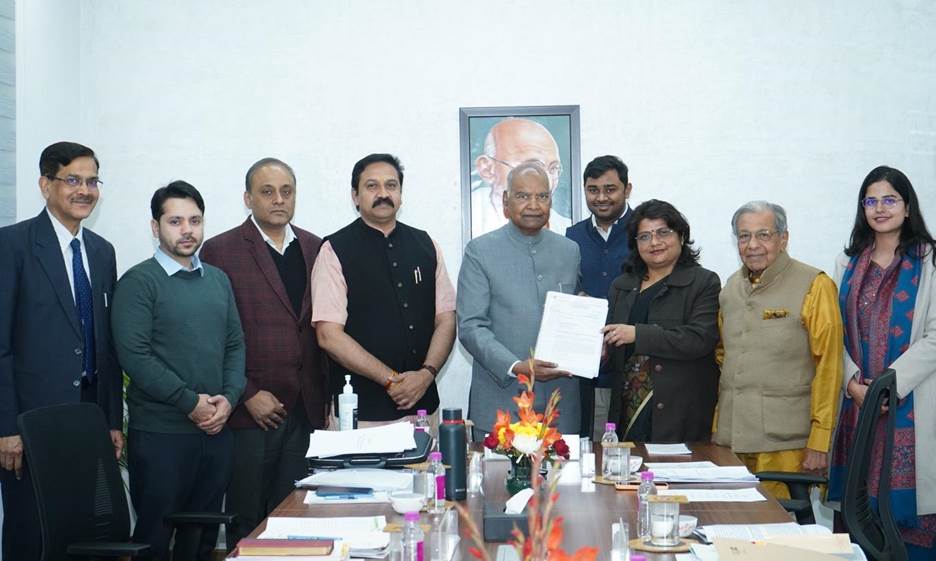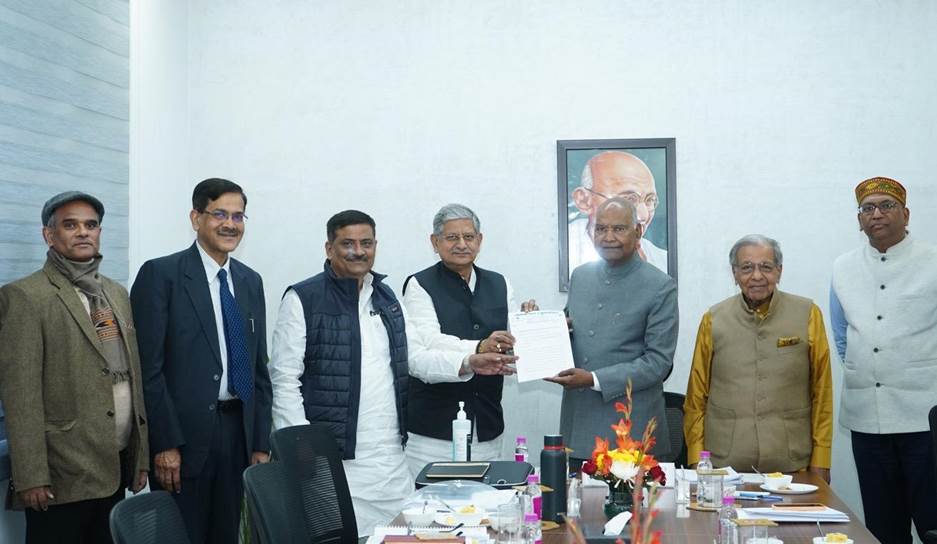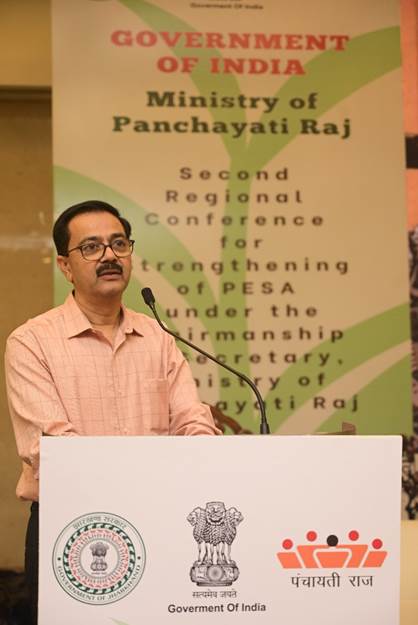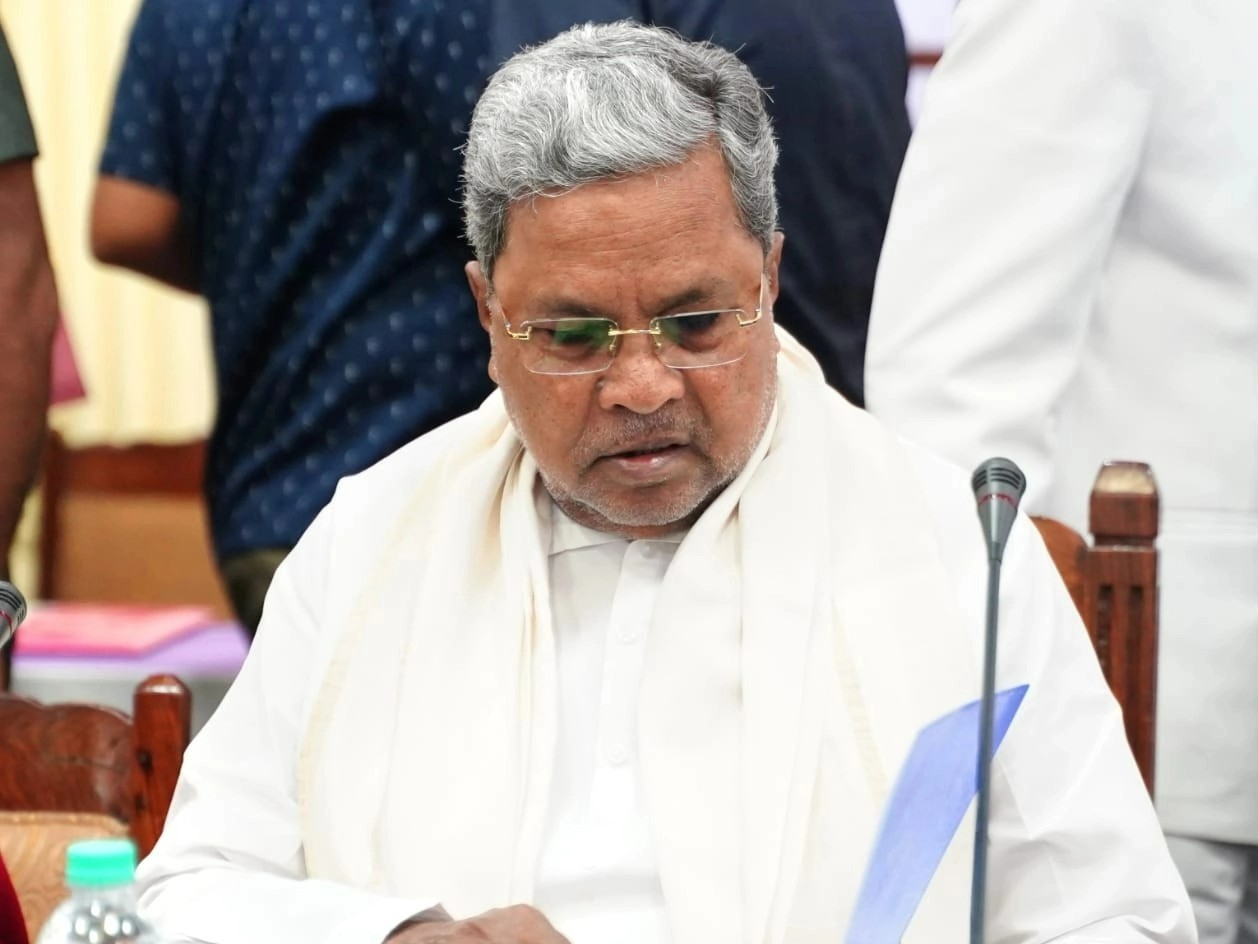The High-Level Committee (HLC) on One Nation One Election, helmed by Shri Ram Nath Kovind, continued its crucial dialogue with political parties and stakeholders on February 17th, 2024. This ongoing series of consultations aims to gather diverse perspectives and craft well-informed recommendations on the feasibility and potential implications of implementing simultaneous elections across India.
 A delegation from the Janata Dal (United) (JD(U)), led by the Member of Parliament and Parliamentary party leader Shri Rajiv Ranjan Singh (Lalan Singh) and General Secretary Shri Sanjay Kumar Jha, presented a strong case in favour of simultaneous elections. Their memorandum outlined several key arguments:
A delegation from the Janata Dal (United) (JD(U)), led by the Member of Parliament and Parliamentary party leader Shri Rajiv Ranjan Singh (Lalan Singh) and General Secretary Shri Sanjay Kumar Jha, presented a strong case in favour of simultaneous elections. Their memorandum outlined several key arguments:
- Financial Prudence: Simultaneous elections would significantly reduce the financial burden associated with frequent polls. Streamlining campaigning, logistics, and security arrangements across multiple elections would lead to substantial cost savings for the government and political parties alike.
- Policy Continuity and Stability: By eliminating the disruptive cycle of staggered elections, synchronized polls could pave the way for more stable governance and uninterrupted policy implementation. This, in turn, could foster a more predictable and investor-friendly environment, potentially boosting economic growth and development.
Adding another layer to the HLC’s discourse was the participation of a delegation from the Akhil Bharatiya Adhivakta Parishad (ABAP), a prominent national lawyers’ body. Led by Shri Shrihari Borikar, the team presented their views in support of simultaneous elections. While the specific details of their arguments remain undisclosed, their involvement signifies a growing interest and engagement within the legal community regarding this transformative proposal.
These consultations hold immense significance as the HLC navigates the intricate landscape of One Nation One Election. Gathering diverse perspectives from political parties, legal experts, civil society organizations, and the general public ensures a comprehensive understanding of the potential benefits, challenges, and complexities associated with this large-scale reform.
Furthermore, open and inclusive dialogue fosters transparency and public trust in the process. By considering a wide range of viewpoints, the HLC can formulate well-rounded recommendations that address potential concerns and pave the way for a more informed national conversation on this critical issue.
The HLC is expected to finalize its report with recommendations to the government shortly. The outcome of these consultations will be keenly watched by policymakers, political parties, and the Indian public at large. Whether One Nation One Election eventually becomes a reality in India remains to be seen, but the ongoing dialogue underscores its potential to reshape the nation’s electoral landscape and governance structure.




